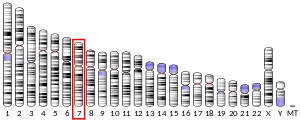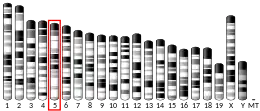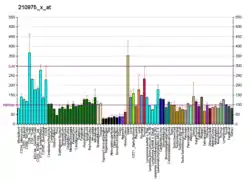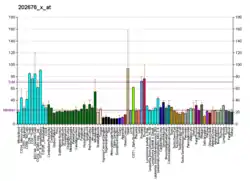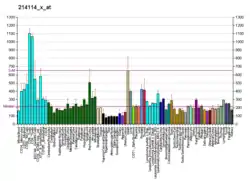| FASTK | |||||||||||||||||||||||||||||||||||||||||||||||||||
|---|---|---|---|---|---|---|---|---|---|---|---|---|---|---|---|---|---|---|---|---|---|---|---|---|---|---|---|---|---|---|---|---|---|---|---|---|---|---|---|---|---|---|---|---|---|---|---|---|---|---|---|
| Identifiers | |||||||||||||||||||||||||||||||||||||||||||||||||||
| Aliases | FASTK, Fastk, 0610011K02Rik, 610011K02Rik, FAST, Fas activated serine/threonine kinase | ||||||||||||||||||||||||||||||||||||||||||||||||||
| External IDs | OMIM: 606965 MGI: 1913837 HomoloGene: 4884 GeneCards: FASTK | ||||||||||||||||||||||||||||||||||||||||||||||||||
| |||||||||||||||||||||||||||||||||||||||||||||||||||
| |||||||||||||||||||||||||||||||||||||||||||||||||||
| |||||||||||||||||||||||||||||||||||||||||||||||||||
| |||||||||||||||||||||||||||||||||||||||||||||||||||
| |||||||||||||||||||||||||||||||||||||||||||||||||||
| Wikidata | |||||||||||||||||||||||||||||||||||||||||||||||||||
| |||||||||||||||||||||||||||||||||||||||||||||||||||
Fas-activated serine/threonine kinase is an enzyme that in humans is encoded by the FASTK gene.[5][6][7]
The protein encoded by this gene is a member of the serine/threonine protein kinase family. This kinase was shown to be activated rapidly during Fas-mediated apoptosis in Jurkat cells. In response to Fas receptor ligation, it phosphorylates the apoptosis-promoting nuclear RNA-binding protein TIA1. The encoded protein is a strong inducer of lymphocyte apoptosis.
Two transcript variants encoding different isoforms have been found for this gene. The longer one is located in the cell nucleus and cytoplasm, and the shorter one is 34 amino acids at the N-terminus, which is transported to the mitochondrion.[8]
The mitochondrial FASTK isoform localizes in the mitochondrial granules, where it interacts with the GRSF1 protein and binds to mt-mRNA ND6, the template of the only protein encoded on the light strand of the mitochondrial genome. In the case of FASTK deletion, it was observed loss of ND6 mt-mRNA and a 50-60% decrease in the activity of complex I of the respiratory chain. However, overexpression of this protein resulted in the stabilization of ND6 mt-mRNA [8][9]
Other variants exist, but their full-length natures have not yet been determined.[7]
References
- 1 2 3 GRCh38: Ensembl release 89: ENSG00000164896 - Ensembl, May 2017
- 1 2 3 GRCm38: Ensembl release 89: ENSMUSG00000028959 - Ensembl, May 2017
- ↑ "Human PubMed Reference:". National Center for Biotechnology Information, U.S. National Library of Medicine.
- ↑ "Mouse PubMed Reference:". National Center for Biotechnology Information, U.S. National Library of Medicine.
- ↑ Tian Q, Taupin J, Elledge S, Robertson M, Anderson P (September 1995). "Fas-activated serine/threonine kinase (FAST) phosphorylates TIA-1 during Fas-mediated apoptosis". The Journal of Experimental Medicine. 182 (3): 865–874. doi:10.1084/jem.182.3.865. PMC 2192163. PMID 7544399.
- ↑ Li W, Simarro M, Kedersha N, Anderson P (December 2004). "FAST is a survival protein that senses mitochondrial stress and modulates TIA-1-regulated changes in protein expression". Molecular and Cellular Biology. 24 (24): 10718–10732. doi:10.1128/MCB.24.24.10718-10732.2004. PMC 533970. PMID 15572676.
- 1 2 "Entrez Gene: FASTK Fas-activated serine/threonine kinase".
- 1 2 Jourdain AA, Popow J, de la Fuente MA, Martinou JC, Anderson P, Simarro M (November 2017). "The FASTK family of proteins: emerging regulators of mitochondrial RNA biology". Nucleic Acids Research. 45 (19): 10941–10947. doi:10.1093/nar/gkx772. PMC 5737537. PMID 29036396.
- ↑ Jourdain AA, Koppen M, Rodley CD, Maundrell K, Gueguen N, Reynier P, et al. (February 2015). "A mitochondria-specific isoform of FASTK is present in mitochondrial RNA granules and regulates gene expression and function". Cell Reports. 10 (7): 1110–1121. doi:10.1016/j.celrep.2015.01.063. hdl:10261/157664. PMID 25704814.
Further reading
- Auffray C, Behar G, Bois F, Bouchier C, Da Silva C, Devignes MD, et al. (February 1995). "[IMAGE: molecular integration of the analysis of the human genome and its expression]". Comptes Rendus de l'Académie des Sciences. Série III, Sciences de la Vie. 318 (2): 263–272. PMID 7757816.
- Maruyama K, Sugano S (January 1994). "Oligo-capping: a simple method to replace the cap structure of eukaryotic mRNAs with oligoribonucleotides". Gene. 138 (1–2): 171–174. doi:10.1016/0378-1119(94)90802-8. PMID 8125298.
- Bonaldo MF, Lennon G, Soares MB (September 1996). "Normalization and subtraction: two approaches to facilitate gene discovery". Genome Research. 6 (9): 791–806. doi:10.1101/gr.6.9.791. PMID 8889548.
- Suzuki Y, Yoshitomo-Nakagawa K, Maruyama K, Suyama A, Sugano S (October 1997). "Construction and characterization of a full length-enriched and a 5'-end-enriched cDNA library". Gene. 200 (1–2): 149–156. doi:10.1016/S0378-1119(97)00411-3. PMID 9373149.
- Li W, Kedersha N, Chen S, Gilks N, Lee G, Anderson P (May 2004). "FAST is a BCL-X(L)-associated mitochondrial protein". Biochemical and Biophysical Research Communications. 318 (1): 95–102. doi:10.1016/j.bbrc.2004.03.188. PMID 15110758.
- Rual JF, Venkatesan K, Hao T, Hirozane-Kishikawa T, Dricot A, Li N, et al. (October 2005). "Towards a proteome-scale map of the human protein-protein interaction network". Nature. 437 (7062): 1173–1178. Bibcode:2005Natur.437.1173R. doi:10.1038/nature04209. PMID 16189514. S2CID 4427026.
- Oh JH, Yang JO, Hahn Y, Kim MR, Byun SS, Jeon YJ, et al. (December 2005). "Transcriptome analysis of human gastric cancer". Mammalian Genome. 16 (12): 942–954. doi:10.1007/s00335-005-0075-2. PMID 16341674. S2CID 69278.
- Izquierdo JM, Valcárcel J (January 2007). "Fas-activated serine/threonine kinase (FAST K) synergizes with TIA-1/TIAR proteins to regulate Fas alternative splicing". The Journal of Biological Chemistry. 282 (3): 1539–1543. doi:10.1074/jbc.C600198200. PMID 17135269.
- Simarro M, Mauger D, Rhee K, Pujana MA, Kedersha NL, Yamasaki S, et al. (July 2007). "Fas-activated serine/threonine phosphoprotein (FAST) is a regulator of alternative splicing". Proceedings of the National Academy of Sciences of the United States of America. 104 (27): 11370–11375. Bibcode:2007PNAS..10411370S. doi:10.1073/pnas.0704964104. PMC 2040905. PMID 17592127.
